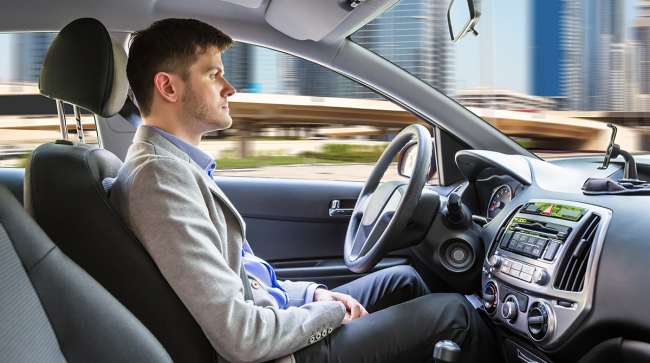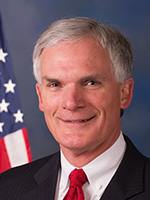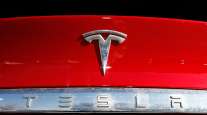Senior Reporter
Rep. Bob Latta Reintroduces Self-Driving Vehicle Bill

[Stay on top of transportation news: Get TTNews in your inbox.]
Legislation meant to facilitate access to autonomous vehicles nationwide has again come before the U.S. House of Representatives.
Rep. Bob Latta (R-Ohio) recently reintroduced the Safely Ensuring Lives Future Deployment and Research in Vehicle Evolution, or SELF DRIVE, Act. The legislation aims to establish a federal framework that would assist agencies and industries deploying autonomous vehicles around the country. The congressman had offered the bill during the most recent sessions of Congress.
“Self-driving cars have the potential to reduce traffic accidents and deaths, increase mobility and improve quality of life,” Latta said June 4. “Autonomous vehicle technology can protect millions of Americans, while at the same time, providing seniors and those living with disabilities a way to live their life outside of their homes. In order for the United States to lead on this cutting-edge technology, we need a framework that allows industry to innovate while ensuring high safety standards. I urge my colleagues in the House and Senate to work with me on this bill to better ensure that all Americans are safer while on the road and have increased access to mobility.”

Latta
The measure’s focus is to enhance the National Highway Traffic Safety Administration’s overview of autonomous vehicles to ensure the technology’s efficient development, testing and deployment. With Congress aiming to advance transportation policy this year, the SELF DRIVE Act has garnered support from many policymakers.
“Recent developments in autonomous vehicle technology have prompted the real need for a national [autonomous vehicle] standard to ensure passenger safety and incentivize continued investment in driverless capabilities,” said Rep. Fred Upton (R-Mich.). “As the auto capital of our nation, Michigan will play a pivotal role in deploying driverless vehicles and propelling our autonomous fleets into the future. This critical technology requires a clear national standard, and I look forward to working with my colleagues to set up the necessary infrastructure to continue this important work.”
Proponents of autonomous vehicle technology praised the bill’s introduction. Self-Driving Coalition General Counsel Ariel Wolf said the lawmakers’ action demonstrated “continued commitment to autonomous vehicles as a transformative technology that will dramatically improve safety, enhance mobility and spur economic growth.”

On May 25, five people pleaded guilty to staging two accidents in New Orleans with tractor-trailers in 2017, while obtaining fraudulent financial settlements totaling more than $282,000. Is the situation surrounding fraudulent settlements getting worse or better in 2021? Host Michael Freeze talks with TT's Eric Miller and Eleanor Lamb. Hear a snippet above, and get the full program by going to RoadSigns.TTNews.com.
Wolf continued: “Federal policies that encourage AV deployment with clear federal and state roles while promoting and protecting American innovation can help to revolutionize how passengers and goods are transported. We encourage Congress to quickly provide a federal framework that can accelerate the deployment of AVs on U.S. roads.”
Earlier this year, Sens. Gary Peters (D-Mich.) and John Thune (R-S.D.) emphasized that autonomous technology has the potential to reshape the country’s mobility landscape, as well as transform access to freight and passenger corridors while assisting individuals who lack connectivity resources. They were the authors of recent Senate legislation having to do with autonomous vehicles.
“One of the most important opportunities we can seize is autonomous vehicle technologies,” Peters said in April. “We know that autonomous vehicles save lives, since 90% of accidents are caused by human error. We know that these technologies are also rapidly emerging and are already impacting the workforce. And we know that our competitors on a global stage, especially China, are recognizing the benefits of these technologies. And let’s be clear, let’s be absolutely clear, these technologies are coming inevitably.”
SELF DRIVE Act by Transport Topics on Scribd
“The United States’ regulatory framework has got to catch up with private sector innovation, in order for these technologies to advance,” Thune added.
Over the years, the bill’s sponsors have sought to advance the measure to the president’s desk for enactment. While the bill has passed in the House, insufficient bipartisan support, primarily in the Senate, has impeded the bill’s progress.
Want more news? Listen to today's daily briefing below or go here for more info:




